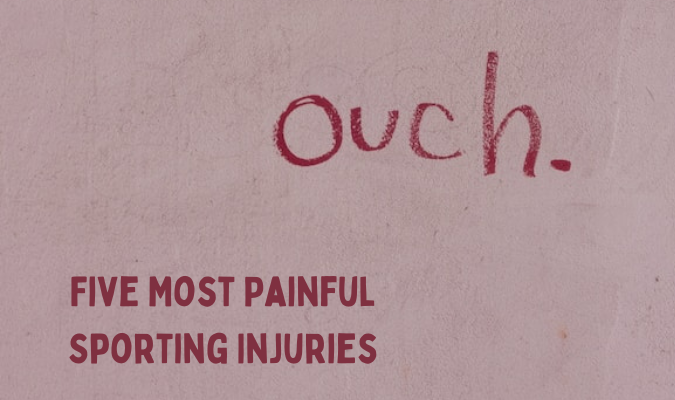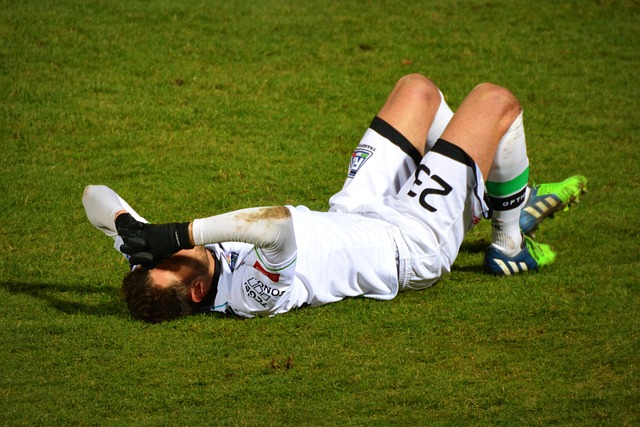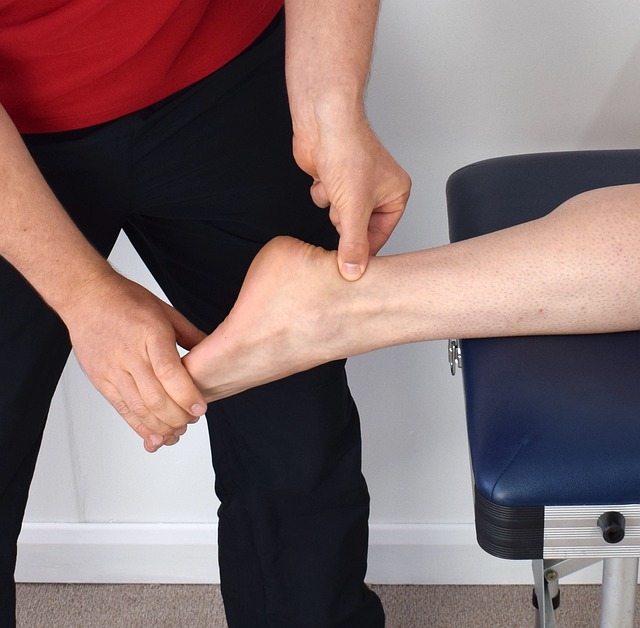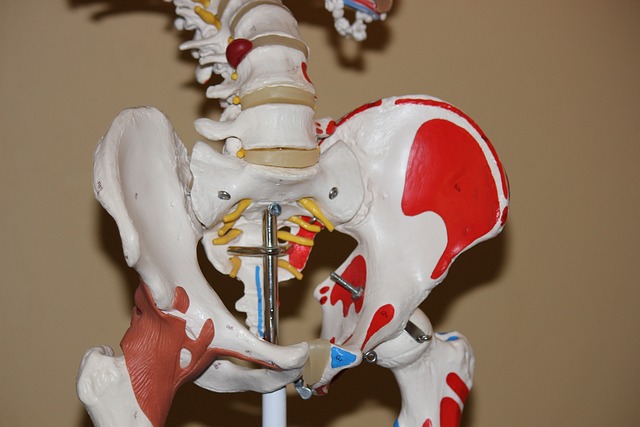Five Most Painful Sporting Injuries

Everyone knows the stereotype of a professional footballer, writhing on the ground after an opponent lightly brushes their arm during a tackle… then again, some sporting injuries are horribly painful.
Knowing the difference (especially in your friendly games) will show you when to seek medical attention, and when to declare your friends good actors.
My list of the five most painful sporting injuries will induce some winces. It might also help you avoid those dangerous activities which can trigger this list of agonising conditions.
Joking aside, a qualified medical professional should assess any injury (however small).
Quick List: The Five Most Painful Sporting Injuries
- Compound Fracture: A broken bone which pierces the skin, combing the agony of soft tissue damage with a bone break.
- Ruptured Achilles Tendon: A sharp pain that will disconnect your calf muscle from your heel. Expect to be laid up with an immobilised leg for weeks.
- Dislocated Joints: You’ll need immediate medical attention if a joint gets dislocated. Common examples are hip and shoulders.
- Cruciate Ligament Tears: The ligaments behind your knee are vital to movement, and when they break you can expect a painful experience.
- Slipped Disc: Known as a herniated disc, this is damage to the soft tissue between your vertebrae. Back pain, nerve compression and numbness are common results.
You’ll see more on each of these nasty sports injuries below – alongside the most dangerous sports / activities for each one.

#1 – Compound Fractures are the Most Painful Sporting Injury
Sports which involve high levels of contact, combined with running and competition for space or balls risk the most agonising sports injury of all – a compound fracture.
Breaking a bone is painful enough on its own. When you combine this with a spit of the skin, with the broken bone causing the tear – well, it is painful to even think about. Only a serious break would pierce the skin, then the tissue damage adds massively to your pain.
Immediate professional medical attention is a must.
Some of the sports where the risk of compound fractures is high are mainstream, though you might have overlooked some of the more niche activities.
- American Football
- Rugby
- Motorsports (motorbike sports especially)
- Gymnastics
- Horseback Sports
#2 – Achilles Tendon Ruptures are Both Painful and Debilitating
A quick, agonising snap is all it takes to see you immobilised for weeks.
Your Achilles tendon links your calf to your heel. It is vital to walking, and sudden stops or movements increase the risk of it breaking. Between 5 and 10 people / 100,000 (1 in 1000 people) will break an Achilles tendon each year on average. This most commonly affects people between 30 and 50 years old (clinical data here). It can take up to 12 weeks to get started again, and longer before you are back to your preferred sport.
I remember a badminton opponent once suffering this painful injury. This large and outwardly tough guy was quickly reduced to a more humbled state! Other sports which have a higher risk of ruptures include basketball, football, wrestling / combat sports, and rugby.

#3 – Dislocated Joints are a Painful Sporting Injury
Hips and shoulders are prone to becoming dislocated. When sudden displacement of these bones happens, the result is incredibly painful. Swelling can exaggerate the problem, and immediate medical attention is a must – as the bones need to be replaced right away.
In many cases a ‘closed reduction’ will return the joint to its correct form. This involves a professional manoeuvring the bones manually. In more severe cases ‘open reduction’ is required, this is surgery. Any fractures or soft tissue damage around the dislocated joint will need to be managed.
There is crossover with the other injuries for high-risk sports for dislocated joints. Hockey, football, rugby, American football, basketball, martial arts and even skateboarding are all risky.
#4 – Agonising Injuries: Torn Ligaments Behind the Knee
Formally known as a torn Anterior Cruciate Ligament, this painful sporting injury involves one or both dual tendons behind the knee breaking.
There is a lot of overlap with a broken Achilles tendon. A quick snap with a sharp pain, then you lose the use of the affected leg for weeks. There are surgical solutions, though commonly you’ll be immobilised, then rehabilitated.
That same list of ball sports, gymnastics and fighting sports carry ACL tear risks.

#5 – Painful Sporting Injuries: Herniated Discs (Back Problems)
This painful sporting injury is somewhat different to the others listed above. Most injuries are acute, coming on suddenly (and painfully).
Damage to the soft tissue between your vertebrae will accumulate over time – an individual collision or accident will be the tipping point into a world of pain.
When the soft tissue that separates the bones in your back ruptures or bulges, a list of horrible symptoms will begin. Back pain is number one, at its most severe this can be incapacitating. You could also experience limb weakness, numbness, and nerve compression.
Any sport can affect the back, though anything involving twisting or bending is higher risk. Examples to add to the usual contact sports include weightlifting and golf.
More Articles to Enjoy While You Stay Injury-Free:
- Stretches for a Long Plane Journey
- Beginners Cross Trainer Workouts
- Beautiful (and Practical) Water Rowers
- Rains Gym Tote Reviewed